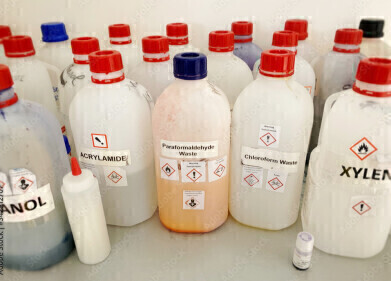Supercritical fluid (SFC), Green Chromatography
Is a Mediterranean Diet the Key to a Long Life?
Jan 05 2017
To stay fit and healthy whilst we are living a long and happy life. These are simple goals for many people — and there are many gurus who will tell you how to succeed. Featuring prominently in many lists of the things you should do to live healthily to a ripe old age is diet — what we eat and drink.
Newspapers, magazines and dieticians all advocate this diet or that diet. Fat free, protein rich, gluten free, 5:2 or 8 hour — the list and names of the different diets suggested goes on and on. But many of these diets have limited evidence to back up the claims made. So, what about the Mediterranean diet?
What is the Mediterranean diet?
The Mediterranean diet is simply based on the traditional diet of people who live around the Mediterranean Sea — people who happen to have less heart disease when compared to people living in northern Europe and the UK. Recent studies have found that people following a Mediterranean diet had a 30% lower risk of suffering from heart disease or stroke.
The diet is relatively simple to follow. Fruit and vegetables play a large role in the diet, whether fresh, frozen or canned — the 5-a-day advice from the UK government is based on this to a certain extent. Reduced intake of saturated fat — not all fat — from dairy and red meat is another aspect of the diet. In fact, monounsaturated fats such as olive oil and from nuts and seeds are a key part of the diet. As are starchy carbohydrate foods, white fish and oily fish and plenty of sunshine in spring, summer and autumn.
Reduced inflammation — secret of long life?
And now a mouse study carried out at the University of Alabama has offered a glimpse into the mechanism behind the diets success. The researchers showed how aging and excess dietary fat helped to increase the risk of heart failure after a heart attack. Heart failure if often a function of overactive inflammation of the heart muscle. Usually after a tissue injury, such as a heart attack, beneficial inflammation responses help to clear the dead cells and help the injured area to start being repaired. The inflammation is controlled by lipids that the body can get from essential dietary fat — particularly omega-3 fatty acids.
The team demonstrated that a combination of age and excess omega-6 fatty acids increased the inflammation and reduced its control — leading to more heart damage. The Mediterranean diet is higher in omega-3 than the typical western diet, which is higher in omega-6 fatty acids. Mice fed a diet with increased omega-6 had indicators suggesting increased inflammation and reduced amounts of the factors that then reduce the inflammation. The team used chromatography to determine the omega-6 concentrations, a technique discussed in the article, Qualitative Analysis of Triglycerides in a Fish Oil using Supercritical Fluid Chromatography (SFC) with a Quadrupole Time of Flight Mass Spectrometer.
Salad with olive oil dressing?
Events
Jan 20 2025 Amsterdam, Netherlands
Feb 03 2025 Dubai, UAE
Feb 05 2025 Guangzhou, China
Mar 01 2025 Boston, MA, USA
Mar 04 2025 Berlin, Germany














